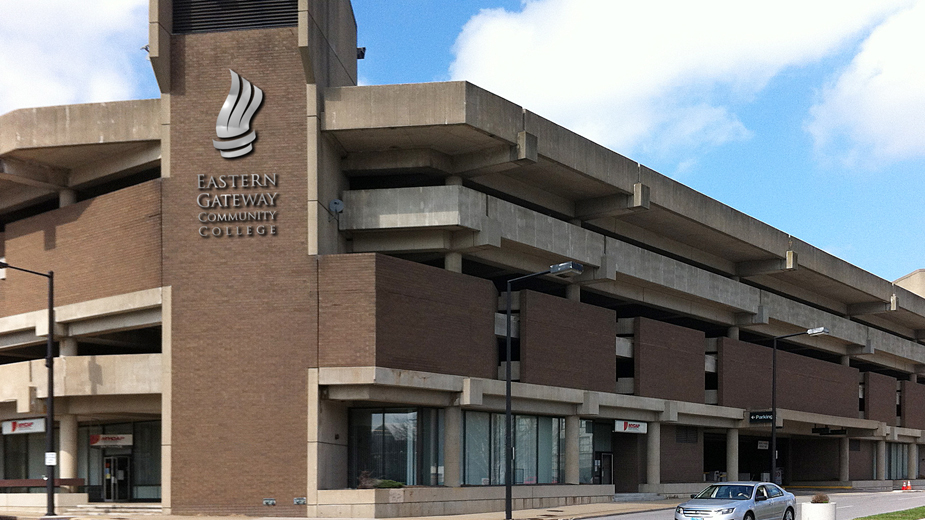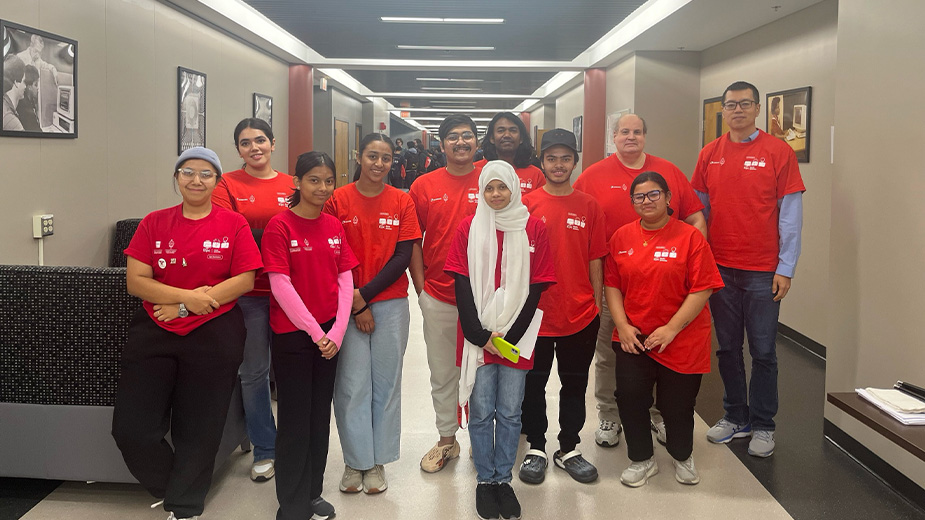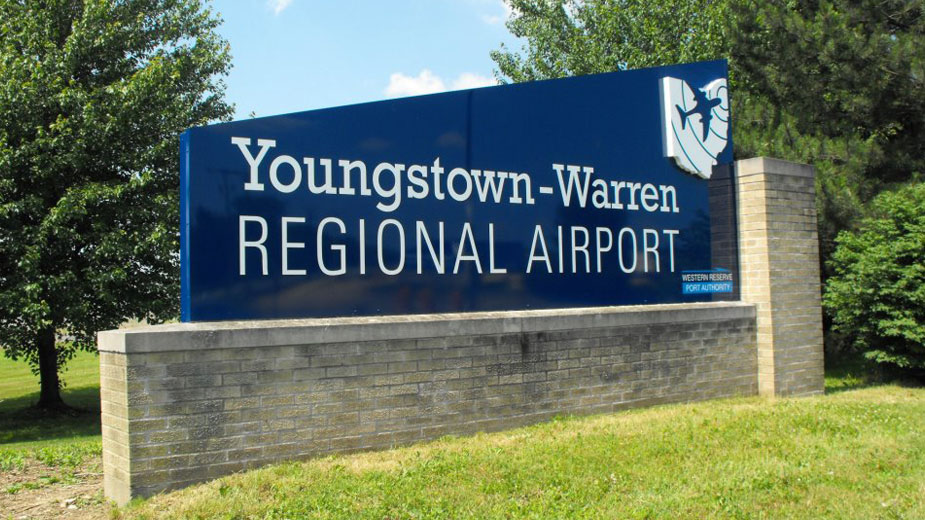YSU Provost: Investigate, Analyze, Communicate
YOUNGSTOWN, Ohio – Youngstown State University strutted its stuff Tuesday as 222 students, both graduate and undergraduate, presented their research during its 26th annual Quest.
The university describes Quest as “a forum for student scholarship.”
While 222 students made formal 10-minute presentations followed by five minutes for questions at sessions held throughout Kilcawley Center, their projects represented the research of another 150 of their fellows in disciplines that range from business administration to history, from computer science to environmental studies, and from education to engineering.
Some titles were easy to understand, such as “Attitudes about Gender Behavior,” by Colleen Sturgeon, a sociology major; “Characterization of Metals [Found] in Urban Soils,” by Braxton L. Wessell, a student in environmental studies; and “Elevator Design,” by four students majoring in electrical engineering. Such titles were in the minority.
Far more common were the esoteric, if not arcane and obscure, titles — such as “Hydrology, Sedimentology and Geomorphology as Drivers of Succession vs. Flood Disturbance within Riparian Forests of Middle Order Streams of the Northeast”; “A Descriptive Analysis of Cleft Neural Arches in the Hamann-Todd Osteological Collection”; and “Chitin Synthase Gene Expression in Penicillium marneffei in Response to Cell-Wall Stressors.”
The keynote speaker, interim Provost Martin Abraham, recalled his own research efforts. Abraham has written or co-written 88 papers, four of which other researchers have cited more than 100 times in their papers.
The flip side is that many of his papers have fallen into oblivion, he said. “Ten percent of what you do will have 90% of the impact,” Abraham said. “Not everything you do is going to be a great success,” but the researcher doesn’t know that when he finishes a project and writes it up.
The provost told of his efforts to adapt methanol (a one-carbon alcohol, not methanol, a two-carbon alcohol) as an additive to gasoline to fuel automobiles. He was trying to develop a catalytic converter.
As a young professor, Abraham and his colleagues at the University of Tulsa, funded by AlliedSignal Inc. (since acquired by Honeywell Corp.) spent four years on the project during which he guided students who wrote papers on their research. Allied Signal decided not to fund any further research but its money was not wasted, Abraham said.
They paid for students to refine their research and meet and make friends with scientists and engineers they later worked with on other projects.
“What I’m proudest of,” Abraham said, “are the number of high-quality students who have worked in my labs [throughout his career] and go on to have successful research careers – [at the] undergraduate, masters and doctoral [levels].”
Not only is research important, Abraham said, communicating what you’ve learned (and haven’t learned) to the rest of the world is equally important. “You can be the greatest researcher,” he said, but it comes to naught “if you aren’t able to explain it.”
That’s why the presentations at Quest are important in the course of YSU students’ academic growth.
“Presentation is your ticket to conferences. The purpose of conferences is to get to know other people in your field,” Abraham said. At conferences, participants learn what their colleagues are working on and exchange insights. These exchanges make them better researchers and better sources of information to their students.
Research keeps one humble, the provost said. “None of my papers or presentations has been perfect.” In returning to some “six months later, I discovered mistakes.”
Regardless, research is essential and continued research will both validate original findings and uncover shortcomings not apparent at the time. “Don’t let perfection be the enemy of the good,” he advised, for if a researcher waits for perfection, he’ll publish very little.
Research is a collaborative process, because another scientist — whether chemist or anthropologist, say — might provide the insight the author or group of researchers didn’t quite nail down, Abraham noted.
Although he didn’t use the word “serendipity,” Abraham hinted at the concept. Crediting racecar driver Bobby Unser with the aphorism, “Success occurs when preparation meets opportunity,” the interim provost modified that to, “Success occurs when you’re prepared to be lucky.”
Researchers never know when those moments will come. “Opportunities doesn’t occur every day,” he said. So it behooves researchers to not get discouraged or let their guard down.
“Research leads to scholarship,” he said. “Analysis and investigation allow you to describe what you’ve learned to a larger audience.”
Copyright 2024 The Business Journal, Youngstown, Ohio.



